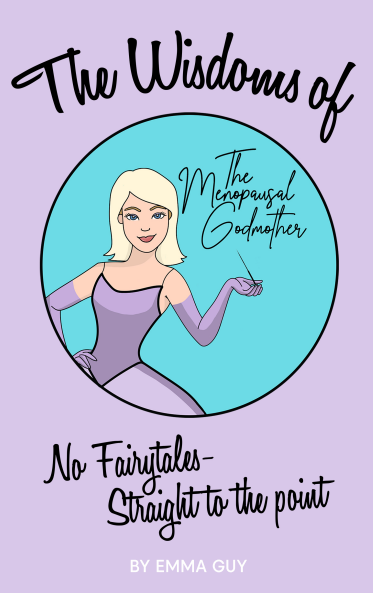Yes 34 symptoms – and counting. The menopause isn’t a simple condition with a one size fits all solution. There are symptoms you may have heard about – hot flushes, irregular periods and mood swings but that tingly skin sensation and lapse of concentration you’re experiencing could also be caused by the hormonal changes you’re going through.
Many women require support when suffering from these symptoms. This will hopefully help to explain some of the symptoms you’ve or your partner have been having and will put your mind at ease, knowing that its normal to experience any of these things when going through the menopause.
1. Hot flushes
Hot flushes are best described as a creeping feeling of intense warmth that quickly spreads across your whole body and face. It’s as if your internal thermostat has gone haywire and caused you to overheat.
Is it common? Yes around 75 per cent of women experience them
Treatment?
Hormone Replacement Therapy (HRT), acupuncture, soy isoflavones, flaxseed, black cohosh, red clover and dong quai can all help.
2. Night sweats
This is where you wake up drenched in sweat. Like hot flushes, night sweats are a vasomotor symptom – a temperature dysfunction that occurs due to changes in hormones.
Is it common? Yes around 75 per cent of women experience them
Treatment?
Hormone Replacement Therapy (HRT), acupuncture, soy isoflavones, flaxseed, black cohosh, red clover and dong quai ginseng can be effective.
3. Menstruation becomes unpredictable
You may notice that your periods are less frequent. They can also be much lighter or much heavier than normal.
Is it common? Yes. Irregular periods are a hallmark of perimenopause. Most of the time this is normal and nothing to be concerned about
Treatment? Hormone therapies, including birth control pills or an intrauterine device (IUD).
4. Mood swings
Feeling moody, depressed, down one minute, up the next? Some women can cope but for others these mood swings can be debilitating.
Is it common? A third of women are said to experience mood swings.
Treatment? HRT, St John’s wort which is a well-known treatment for mild depression, might also have a special benefit for women during menopause, particularly when combined with black cohosh. If symptoms prevail please visit your GP.
5. Vaginal dryness
As oestrogen levels, drop, you may notice itchiness as well as discomfort during sex. A lack of oestrogen makes the vagina and the inner mucosa of the vulva become quite irritated.
Is it common? It’s estimated that the problem affects about half of postmenopausal women — most of whom, possibly as many as 90%, don’t seek treatment for their symptoms, which include not only dryness but also irritation and pain during sexual intercourse.
Treatment? Topical oestrogen for HRT can help.
6. Diminished libido
With decreasing levels of hormones comes decreased sex drive.
Is it common? The reported rates of sexual problems in postmenopausal women are between 68 and 86.5 percent.
Treatment? HRT can help.
7. Headaches
Hormonal fluctuations can mean women have worsening headaches during perimenopause.
Is it common? Those prone to headaches may see them become more severe and frequent.
Treatment? Nonsteroidal anti-inflammatory drugs (NSAIDs). Pain relievers such as ibuprofen and naproxen, HRT.
8. Breast soreness
Oestrogen and progesterone levels rise and fall in unpredictable patterns during menopause, meaning that tender breasts can be more of an issue.
Is it common? Yes, and breasts may also change shape and size during this time.
Treatment? Painkillers, as well as lifestyle changes such as wearing a supportive bra and reducing caffeine intake, can help.
9. Burning mouth
Burning mouth syndrome makes it feel like your mouth is stinging or tingling and it’s caused by hormone imbalance.
Is it common? It affects from 18 to 33 percent of women.
Treatment? Restoring optimal hormone levels can treat this, but as a quick fix, try keeping hydrated and chewing gum to restore saliva levels.
10. Joint pain
This is caused by declining oestrogen levels.
Is it common? Yes, most women will experience aches and pains.
Treatment? HRT, exercise and over the counter remedies can work for this.
11. Gum problems
Sore gums are caused by hormonal fluctuations.
Is it common? Fairly. Up to a third of women experience problems with their gums around the menopause.
Treatment? Saltwater rinse, over the counter remedies, herbal supplements.
12. Digestive problems
The changes in hormones can lead to stomach upsets, bloating, cramps and other digestive conditions, while your IBS can also be made worse.
Is it common? Yes, fairly common.
Treatment? Over the counter remedies but you should also talk to your GP as bloating and pain can be a symptom of other more serious conditions.
13. Electric shock sensations
Some women experience electric shock sensations caused by fluctuating estrogen levels on the cardiovascular and nervous systems.
Is it common? No.
Treatment? Redress hormone imbalance.
14. Sore muscles
Caused by stress and also cell deterioration.
Is it common? Fairly.
Treatment: Exercise such as yoga can build up muscles and help you relax.
15. Insomnia
You may find you develop insomnia, which is usually caused by the decline of oestrogen in the body. Hot flushes, frequently visiting the loo and anxiety can all contribute to sleep disturbance.
Is it common? Figures are given for how many women experience sleep disturbance during the menopause range from 28 to 63%.
Treatment? HRT and also lifestyle changes such as taking exercise, wearing cool, loose clothing in bed and not drinking caffeine several hours before bedtime.
16. Tingling
Paresthesia to give it its medical name is caused by oestrogen’s fluctuations during menopause.
Is it common? Fairly common.
Treatment? HRT and other hormone balancing remedies and also acupuncture and exercise can help.
17. Itchy skin
Studies more than twenty years ago showed that skin becomes thinner and more fragile in women after the menopause making it drier and more sensitive.
Is it common? Yes.
Treatment? Keeping skin moisturised, HRT.
18. Exhaustion
Oestrogen, progesterone, thyroid and adrenal hormones are all involved in energy levels and when these are disrupted, women can feel drained.
Is it common? Yes
Treatment? Herbal remedies, exercise, limit caffeine intake, make sure you get enough sleep at night.
19. Hair loss
Unfortunately, some women experience hair loss as the result of an increase in androgens. These male hormones shrink hair follicles, resulting in hair loss on the head. In some cases, however, these hormones can cause more hair to grow on the face.
Is it common? Yes.
Treatment? A balanced diet and more exercise can help with stress, HRT.
20. Memory lapses
Trying to find the ‘right’ word and memory lapses can occur during menopause.
Is it common? Yes. One survey found that around 80% of women had symptoms related to the menopause that interfered with their ability to work, including memory loss.
Treatment? Diet and exercise and herbal supplements may help.
21 Poor concentration
Finding it hard to focus? Brain fog is another by-product of the menopause.
Is it common? Yes.
Treatment? HRT.
22. Weight gain
The drop in oestrogen levels that happens at menopause has the effect of redistributing body fat, so excess pounds tend to settle around the waist as the dreaded ‘middle-aged spread’.
Is it common? Yes, most women gain about 1-2kgs (2-5 lbs) while some gain more.
Treatment? Try reducing your calorie intake by between 400 and 600 calories a day, and also include exercise into your daily routine.
23. Anxiety
The usual stresses of life coupled with the hormonal changes of the menopause can cause you to feel anxious.
Is it common? Yes. Studies report that 23 percent of women experience symptoms of anxiety.
Treatment? You can talk to a doctor about medication but also exercise and alternative practices such as relaxation techniques. meditation and yoga can be beneficial.
24. Depression
Depression is four times more likely to affect women of a menopausal age than a woman below the age of 45.
Is it common? More widespread than doctors recognise.
Treatment? HRT can help.
25. Panic disorder
It’s not surprising considering what is going on in your body, that instances of panic disorder can occur in women at this time.
Is it common? You are not alone! Around 23 per cent of women are going through this.
Treatment? See your doctor about what help is available to you.
26. Dizziness
As the level of the female hormones oestrogen and progesterone change they can have an effect on circulation and blood vessels, this causes your blood pressure to rise and fall and this can cause you to feel dizzy.
Is it common? Not uncommon.
Treatment? HRT
27. Bloating
You may experience this when you start the menopause but it decreases with the decline of oestrogen which causes the body to retain water.
Is it common? Yes.
Treatment? HRT or over the counter treatments including herbal remedies can be effective.
28. Stress incontinence
While not necessarily caused by the menopause, stress incontinence is something that can develop as we get older.
Is it common? Yes.
Treatment? Weight loss, Kegel exercises, which target the pelvic area, HRT.
29. Irregular heartbeat
Changing hormone levels can cause palpitations, which can occur alongside hot flushes.
Is it common? Yes.
Treatment? Beta-blockers could be prescribed by your GP or HRT can also help.
30. Allergies
Have you suddenly found yourself allergic to wine? Many women develop allergies triggered by declining oestrogen levels, stressing out the nervous system. This causes the body to produce more histamine that can cause allergy symptoms.
Is this common? Moderately.
Treatment? Hormone therapy, anti-histamine medication, painkillers decongestants.
31. Brittle nails
As your skin becomes drier so do nails.
Is it common? Yes.
Treatment? Take a biotin supplement, stay hydrated, regularly, apply hand cream created to treat both skin and nails.
32. Body odour
Suddenly your body smells differently. This could be because of hot flushes causing you to sweat more or because of hormonal changes.
Is it common? Yes.
Treatment? You can use a natural deodorant or seek out herbal remedies that can help.
33. Sexual pleasure is diminished
It’s natural for there to be less blood flow to the clitoris and vagina, which reduces sensitivity and can make orgasms both more difficult to achieve and less intense.
Is it common? Surveys how around 23% of women ages 57 to 85 said they did not find sex pleasurable.
Treatment? Doing regular pelvic floor exercises can help increase vaginal sensation and intensify orgasms, as well as helping with stress incontinence. Some people find that using love balls can help them with pelvic floor exercises.
34. Osteoporosis
Women’s risk of osteoporosis increases after the menopause. The lack of oestrogen causes bones to crumble and become fragile. As much as half of a woman’s total bone loss occurs within the first 10 years following her last monthly period.
Is it common? Yes. One in two postmenopausal women will have osteoporosis and most will suffer a fracture during their lifetime
Treatment? Calcium and vitamin D supplements, weight-bearing exercises, hormone therapy.

Emma is a multi-entrepreneur. She founded The Menopausal Godmother and Acupuncture That Works. She specialises in acupuncture for menopause & fertility and has delivered acupuncture to over 1000 women going through the menopause.








